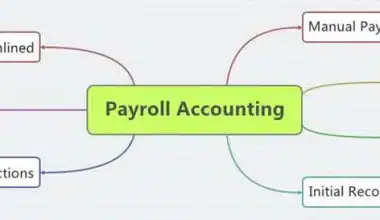Saving money falls under personal finance. People claim that it is simple. You’ve just gotta do it! Take precautions! Quit squandering temptations! In essence, it is not the case. Saving is similar to eating your veggies in that you recognize its importance but fail to give it the attention it merits. Your savings objectives are likely stagnant due to infrequency and inconsistency, even if you make occasional contributions. Fortunately, technology has enabled us to eliminate personal accountability from the scenario. Savings apps are an effortless, trustworthy, and failsafe approach to saving extra money. This is just the tip of the iceberg! Stay with me as I go through everything you need to know about the best money-saving apps, including free ones.
Why Is Saving Money Important?
The ability to save money helps people feel more secure and at ease in their lives by providing a financial “backstop” for the unpredictable nature of life. As a result, once an adequate reserve has been built up for unforeseen expenses, savings can also serve as the “seed money” for higher-yielding assets, such as stocks, treasuries, and mutual funds, which is another benefit of prudent financial planning.
9 Best Money Saving Apps
Apps that help save money can make the process of conserving money over time easier and more viable. Check out our list of the top 9 money saving apps below.
#1. Qapital
Qapital is one of the best money saving apps as it enables you to program saving rules to run automatically. To illustrate, if you make a purchase using one of your connected funding accounts, Qapital can automatically transfer the difference to a savings account at a partner bank that is FDIC-insured. Nevertheless, you might put aside a regular, predetermined sum into your savings account. Qapital’s premium memberships, which start at $12 per month and include features like debit cards and automated investment guidelines, give even more value.
Hence, if you want to use Qapital to help you reach your financial goals, you’ll need to link it to a traditional bank account. Also, in one to two business days, you can withdraw money from your Qapital account.
#2. Digit
This is one of the best money-saving apps for people who spend more than they save. Digit costs $5 monthly after a 30-day free trial. The app’s auto-savings features, credit card debt payoff, and savings objectives are also included in the cost. Digit gives a 0.1 percent yearly savings incentive every three months, which helps reduce the membership charge.
In addition, Digit will not withdraw funds until you are able to save. It takes between one and three business days to return money to your bank account. You can get the money back in your bank account in 30 minutes for 99 cents.
#3. Chime
Chime is an online bank that provides a free mobile banking app and debit card with many features to help you save more money. One strategy is to automatically deposit a certain percentage of each paycheck into savings, while another is to round up your expenditures and put the difference in savings. Hence, with direct deposit, you can get paid two days early. Using a debit card instead of a credit card also comes with a few bonuses of its own.
There are also some advantages to using a debit card. One of the many great things about the card is that it can be used internationally without any fees. However, not having a web version of the app is a drawback.
#4. Acorns
Acorns is one of the best money-saving apps that allows you to dip your toe into investing while simultaneously saving. Download the app, connect your bank account(s), credit card(s), and debit card(s), and off you go. As soon as you activate its round-up function, Acorns will operate as a digital savings account by automatically rounding up your purchases to the nearest dollar and adding the difference to your Acorns balance. Thereafter, it takes care of everything for you.
Acorns even offers reward points. This money saving app is ideal for individuals who want to put their money to work yet don’t mind taking a chance.
#5. Mint
Mint is also rated as one of the best money saving apps because it’s an outstanding monthly budgeting software. It simply categorizes and updates transactions so you can view your expenditures in real-time. Mint recommends budgets depending on your expenditures. Subsequently, by integrating your credit accounts—bank and loan—the application analyzes the data in those accounts and allows you to categorize your expenditures. As a result, you can calculate how much money you can save by limiting your spending.
#6. Qoins
Qoins is one of the best money saving apps that helps customers pay off their debts quickly. To make purchases within the app, customers must first integrate their payment systems. Qoins automatically adds the spare change from your purchases to your Qoins balance.
In addition, it automatically pays off your debts once a month using the round-ups you’ve accumulated. Qoins is mostly about credit card and student loan debt, but you can also add other deficit accounts to your database.
#7. Rocket Money
Do you want to get the desired effect of reduced expenses? Here is the good news! You can accomplish this with the aid of Rocket Money. Rocket Money will attempt to negotiate a lower cost with your cable, online, and wireless carriers on your behalf. They collaborate with several businesses, such as, AT&T, Cox Telecommunications, Time Warner Cable, and Verizon.
Rocket Money’s premium service, for a monthly price of $3 to $12, not only negotiates your costs on your behalf . It also keeps track of your transactions and cancels any services you no longer require.
#8. Long Game
The goal of Long Game is to encourage people to put some of the money they would normally spend on raffle tickets into savings. Subscribers that save using the app are enrolled in a raffle for bonus funds. The more money you put away in these prize-linked savings accounts, the more opportunities you’ll have to win real money from playing games.
Furthermore, with the added security of FDIC insurance, you can rest assured that your money is safe in your Long Game bank account. You can also earn 0.1% interest on your balance just by using the app. You can also set up savings contributions for the next pay period through the app. So, if the excitement of playing the lottery and the thrill of finding new ways to save money seems like fun to you. Then this app is the best for you.
#9. Twine
Twine is a one-of-a-kind money saving app that enables married people to invest and save money jointly. If you are in a committed relationship, you and your partner are most likely working toward the same long-term savings objectives.
One or both parties can make contributions toward the shared goals and monitor the other’s progress to ensure both are held accountable. The interest rate on joint savings accounts has increased to 1.05%, giving you the option of saving or investing the money.
What Is the 50/30/20 Rule?
The 50/30/20 rule is a popular example of a budget based on percentages. The basic rule is to spend 70% of your money on things you need, 30% on things you want, and 20% on savings.
How Can I Save $1,000 in One Month?
- Create a shopping list and weekly meal for your grocery shopping.
- Spend less per item if you buy in quantity.
- If you can switch to generics.
- Don’t get spotted paying exorbitant ATM fees.
- Credit card interest can be avoided by paying off your balance in full every month.
- Pay with cash only.
- Use the library as a resource for entertainment and learning.
- Reduce your petrol costs by sharing a ride with a friend.
Best Money Saving Free Apps
Here are the best 5 best money saving free apps:
#1. Acorns
Acorn is one of the best free money saving apps. When it comes to round-up applications, Acorns is one of the first and already has over 9 million users. It’s a great place to invest your money because of the minimal fees, and free checking, and debit card. This is useful for saving, investing, or both.
After signing up, you will have to connect your payment methods (debit and credit cards) to your account. Once your Acorns balance reaches $5, it will automatically be transferred from your connected bank account
Also, with Acorns, you can decide how your spare change will be invested. All users have access to a variety of pre-set portfolios, ranging from safe to risky stocks. There are other socially responsible investment options available. Acorns handles it from there, putting your money to work in low-cost, diversified ETFs (exchange traded funds). In addition, Acorns is a financial service that offers savers a bank account and debit card. The FDIC-insured account has direct deposits, mobile check deposits, and free withdrawals at any ATM in the nation. In contrast, it does not pay interest to checking account holders.
A personal Acorns account costs just $3 every month. Investment accounts and checking accounts are included in the monthly fee. If you are prepared to pay $5 each month, you may enroll your children in the family plan and give them a jump start on saving.
#2. Greenlight
The Greenlight debit card provides a resource for young people to learn the value of saving and investing. Young investors will appreciate Greenlight Max since it allows them to purchase shares in their preferred firms or exchange-traded funds. In other words, parents must authorize all deals, and there are no trading costs.
Greenlight’s Savings Boosts provide several incentives to save money. The spare change from each transaction is deposited into savings. As part of the Savings Boosts program, they can also receive a 1% rebate on all transactions and up to a 2% return on their savings. A “Green Light” is not just a platform for investing, but also a banking and accounting tool for children. Families with up to five children are eligible for payment options with prices ranging from $4.99 to $9.98 monthly month.
#3. Empower Finance
Empower Finance is one of the best free money-saving apps that helps you make a budget and keep track of all your accounts. They have just recently begun offering banking services, which means that as of September 2018, not only are you able to link your accounts and monitor your spending, but you can also save funds using their site. A premium version of Empower is available, but the free version has a lot going for it. The interest rates on their savings accounts are also among the best in the business.
#4. PocketGuard
PocketGuard simplifies your finances by notifying you exactly how much money you have available for spending. This free money saving app prompts users to link their bank, credit, and current accounts, and then it analyzes the data to reveal how much money is being spent.
Also, you’ll be able to view the categories of your transactions in this app. You are also able to establish spending limitations, which will alert you with a warning before you go over the limit, giving you time to reconsider your decision. It’s one of the best free money saving apps for tracking your budget that you can obtain.
#5. Prism
Prism is also rated as one of the best free money saving apps because it assists in managing your finances and keeps track of your expenditures. By syncing your balances in the app, Prism allows you to view all of your outstanding bills in one location. Thereafter, you’ll be able to make all of your payments within the Prism app itself. You can also avoid incurring late fees and get a clearer understanding of how your money is utilized each month thanks to this convenient service.
Final Thoughts
Money-saving apps enable users to save money without having to examine their accounts manually each month. Choose an option that works for you, as it will assist you in meeting your short- and long-term financial goals.
BEST MONEY SAVING APPS FAQs
Yes, they not only pay interest on your savings but also provide sound financial advice. Don’t be alarmed; they’re legitimate, safe, and subject to oversight by the Central Bank of Nigeria.
If you open a savings account at a reliable, FDIC-insured bank, you won’t have to worry about losing any of your money. Even if the interest rate on your savings account drops, the money there won’t change.
References
- cnbc.com
- guardian.ng
- bankrate.com
- nerdwallet.com
Related Articles
- HOW TO GET DUNS NUMBER Fast & All You Need.
- BEST INVESTMENT COMPANIES IN 2022
- Robinhood vs Stash: Best 2022 Comprehensive Review, Comparisons & All You Need
- Stock Trading For Beginners: Best Sites For Beginners (Detailed Guide
- HOW TO SAVE FOR A HOUSE IN 2023: Ultimate Guide






